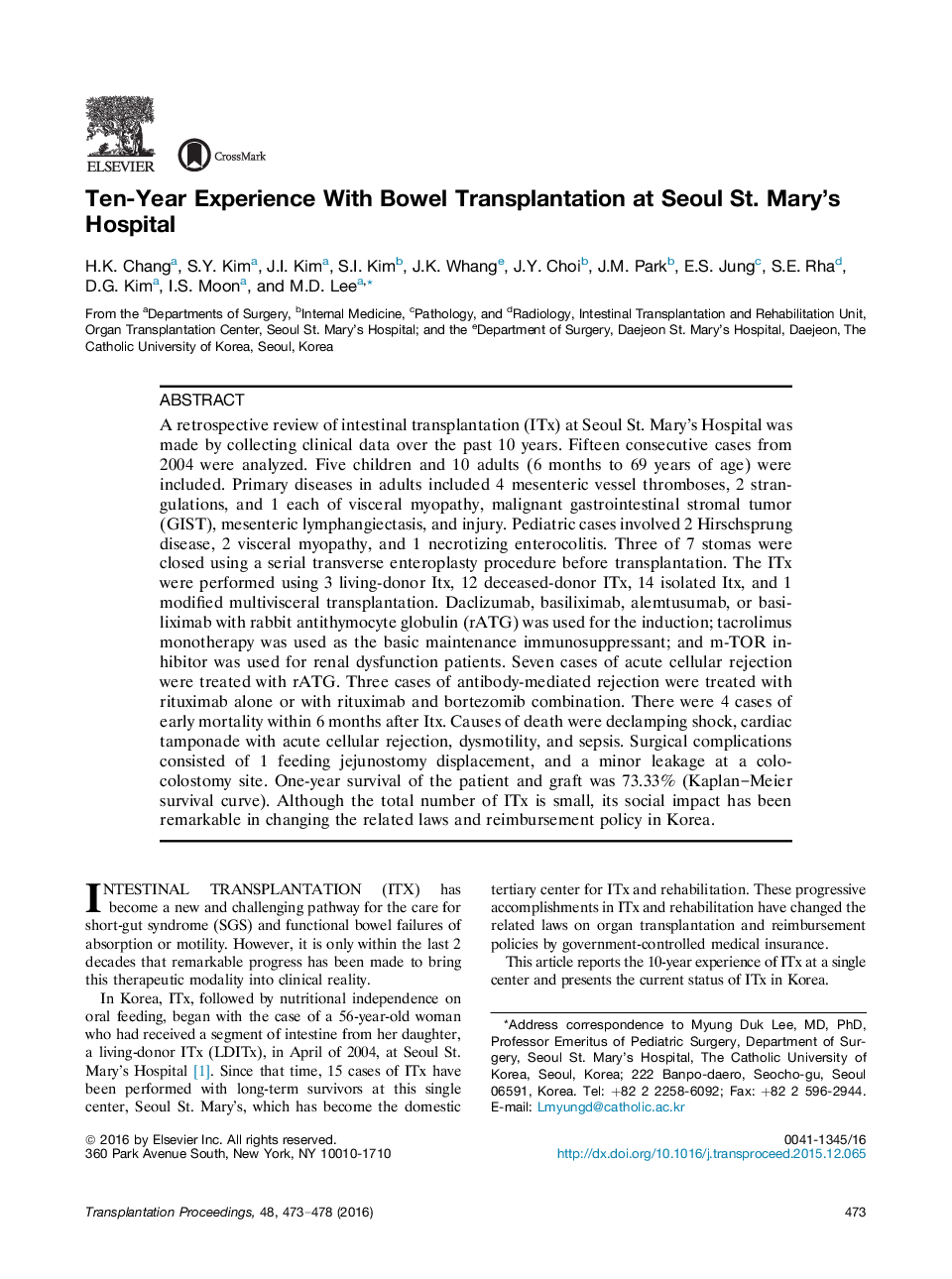| Article ID | Journal | Published Year | Pages | File Type |
|---|---|---|---|---|
| 6246936 | Transplantation Proceedings | 2016 | 6 Pages |
Abstract
A retrospective review of intestinal transplantation (ITx) at Seoul St. Mary's Hospital was made by collecting clinical data over the past 10 years. Fifteen consecutive cases from 2004 were analyzed. Five children and 10 adults (6 months to 69 years of age) were included. Primary diseases in adults included 4 mesenteric vessel thromboses, 2 strangulations, and 1 each of visceral myopathy, malignant gastrointestinal stromal tumor (GIST), mesenteric lymphangiectasis, and injury. Pediatric cases involved 2 Hirschsprung disease, 2 visceral myopathy, and 1 necrotizing enterocolitis. Three of 7 stomas were closed using a serial transverse enteroplasty procedure before transplantation. The ITx were performed using 3 living-donor Itx, 12 deceased-donor ITx, 14 isolated Itx, and 1 modified multivisceral transplantation. Daclizumab, basiliximab, alemtusumab, or basiliximab with rabbit antithymocyte globulin (rATG) was used for the induction; tacrolimus monotherapy was used as the basic maintenance immunosuppressant; and m-TOR inhibitor was used for renal dysfunction patients. Seven cases of acute cellular rejection were treated with rATG. Three cases of antibody-mediated rejection were treated with rituximab alone or with rituximab and bortezomib combination. There were 4 cases of early mortality within 6 months after Itx. Causes of death were declamping shock, cardiac tamponade with acute cellular rejection, dysmotility, and sepsis. Surgical complications consisted of 1 feeding jejunostomy displacement, and a minor leakage at a colo-colostomy site. One-year survival of the patient and graft was 73.33% (Kaplan-Meier survival curve). Although the total number of ITx is small, its social impact has been remarkable in changing the related laws and reimbursement policy in Korea.
Related Topics
Health Sciences
Medicine and Dentistry
Surgery
Authors
H.K. Chang, S.Y. Kim, J.I. Kim, S.I. Kim, J.K. Whang, J.Y. Choi, J.M. Park, E.S. Jung, S.E. Rha, D.G. Kim, I.S. Moon, M.D. Lee,
